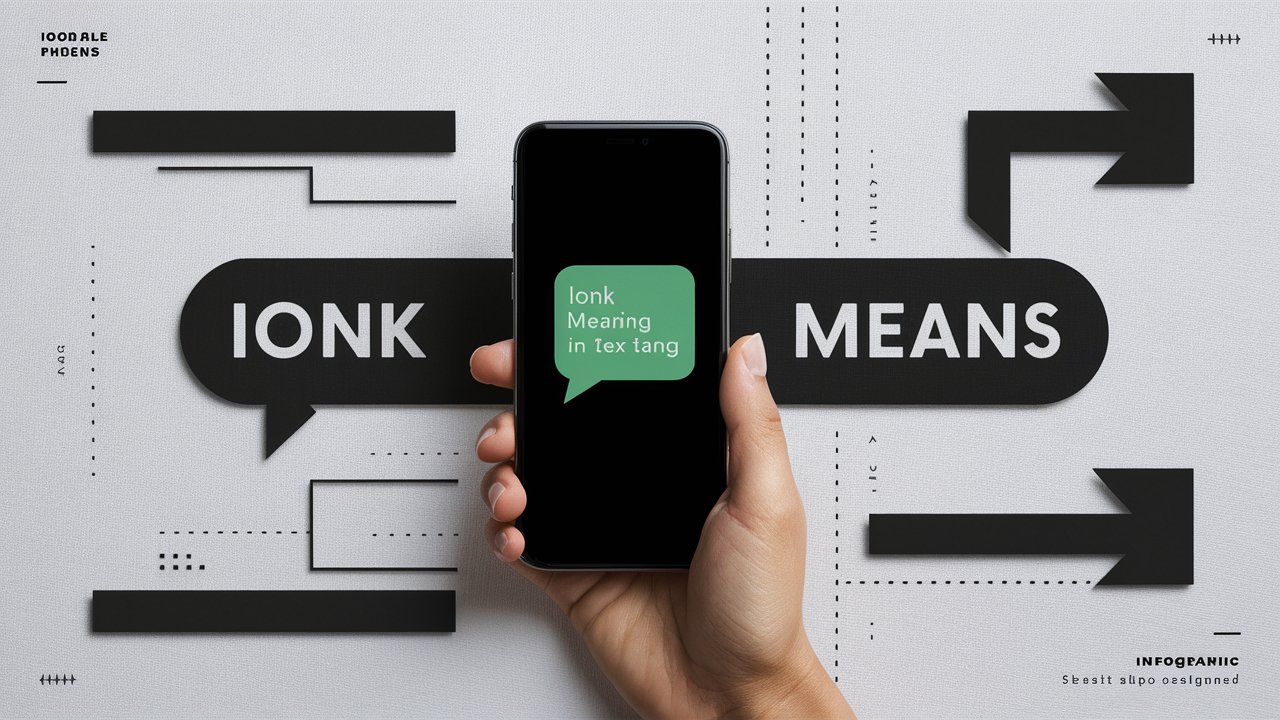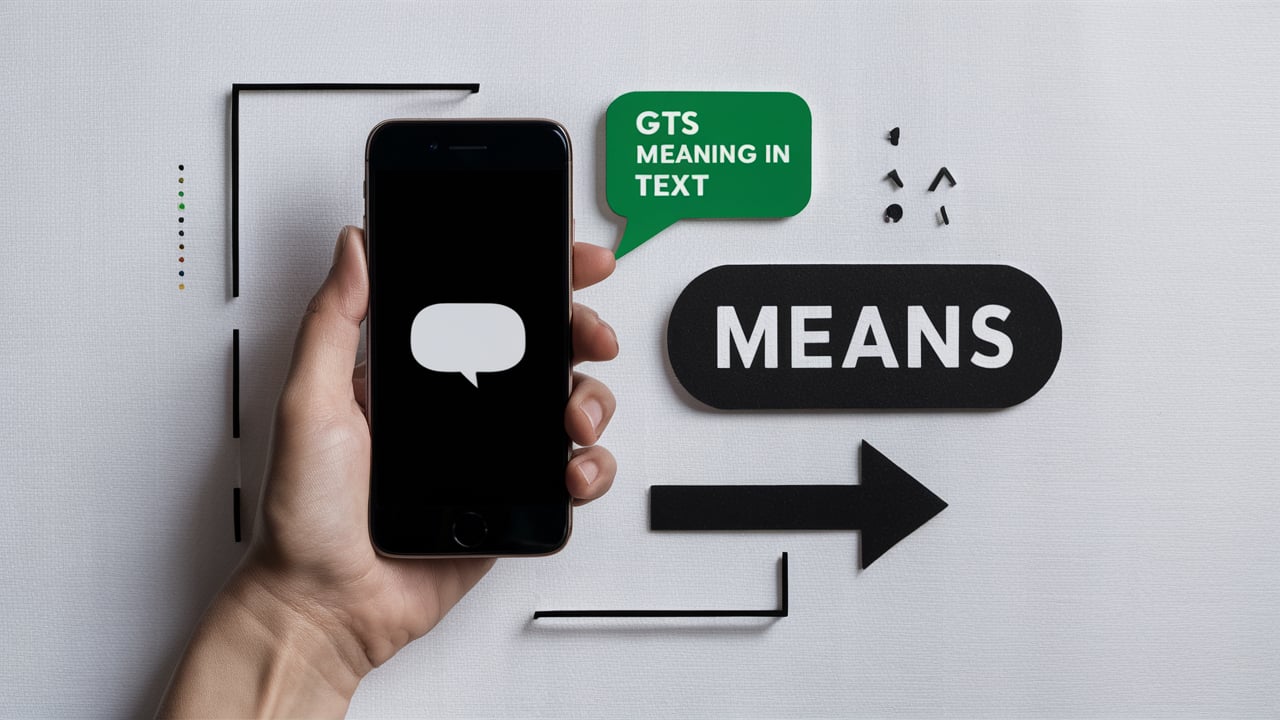In the digital age, language is no longer limited to traditional grammar or dictionary-defined words. Instead, it constantly evolves to meet the fast pace of online communication. One of the biggest transformations we’ve witnessed in recent years is the rise of slang and abbreviations in text/chat culture.
A key part of this transformation is the use of Full Forms. A Full Form is essentially the complete version of an abbreviation or acronym, giving clarity to its meaning. For example, LOL is the short form, while Laugh Out Loud is its full form.
Understanding these slang-based full forms is important because:
- They save time in messaging.
- They represent youth culture and digital creativity.
- They differ from region to region and language to language.
- They help people understand each other across platforms like WhatsApp, TikTok, Instagram, Snapchat, and Discord.
One slang term that has gained traction in 2025 is “ionk.” It’s short, stylish, and widely used—but what does it really mean? Let’s break it down.
What Does ionk Mean in Text Slang?

At its core, ionk stands for “I Don’t Know.”
It is a compressed slang phrase primarily used in casual texting, social media chats, and gaming conversations. While “idk” is the more common abbreviation, “ionk” has become trendy in 2025 because of its phonetic similarity to the way many people pronounce “I don’t know” in speech.
👉 Think of it like this:
- “idk” = standard abbreviation.
- “ionk” = slang variant with extra style and informal flair.
Example Chat:
A: Are you coming to the party tonight? 🎉
B: ionk, depends on my mood.
Here, “ionk” reflects casual uncertainty—it softens the tone, making the reply feel more conversational and less rigid.
Where it’s used most in 2025:
- Teen texting culture.
- TikTok & Instagram captions.
- Gaming lobbies and Discord chats.
- Informal work chats among friends/colleagues.
Now let’s explore how “ionk” adapts across different languages—because slang isn’t just English; it travels the world.
Full Form of ionk in English
Language: English
Full Form: I Don’t Know
In English, ionk is simply an alternative to idk. It’s often used to sound more casual and align with spoken English where “I don’t know” becomes a fast blend that sounds like “ionk.”
Chat Example:
A: What’s your favorite Netflix series right now?
B: ionk, I’m not watching much these days.
Origin & Usage:
The English form came from phonetic texting. Instead of typing “idk,” which feels like a formal short form, users started typing “ionk” to mirror the way people actually say it.
Full Form of ionk in Hindi
Language: Hindi
Full Form: Mujhe Nahin Pata (मुझे नहीं पता)
In Hindi, the spirit of “ionk” translates to “Mujhe Nahin Pata,” which is the standard way of saying I don’t know. However, Hindi speakers who text often mix English with Hindi (known as Hinglish). So “ionk” is used in Hinglish chats as a stylish abbreviation, even though the meaning stays the same.
Chat Example:
A: Kal ka plan kya hai?
B: ionk, dekhte hain.
Origin & Usage:
By 2025, India’s Gen Z heavily embraces global slang, especially from TikTok and Instagram. “ionk” became popular because it felt cooler than simply writing “idk.”
Full Form of ionk in Italian
Language: Italian
Full Form: Non lo so
In Italian, the equivalent of “I don’t know” is Non lo so. While Italians don’t directly replace their phrase with “ionk,” they use “ionk” in online chats with international friends or when switching between Italian and English.
Chat Example:
A: Stai venendo alla festa stasera?
B: ionk, forse sì.
Origin & Usage:
Italy’s youth digital culture blends local slang (boh is also common for “I don’t know”) with global abbreviations. By 2025, “ionk” works as a borrowed slang term, showing global connectedness.
Full Form of ionk in Spanish
Language: Spanish
Full Form: No lo sé
Spanish speakers use No lo sé to mean “I don’t know.” Still, in 2025, Spanish-speaking youth widely adopt English internet slang, so “ionk” is used interchangeably with idk.
Chat Example:
A: ¿Qué vamos a cenar?
B: ionk, lo que tú quieras.
Origin & Usage:
The use of “ionk” in Spanish chats reflects global slang adoption. Interestingly, younger users prefer “ionk” when chatting in mixed English-Spanish texts, especially across Latin America.
Full Form of ionk in French
Language: French
Full Form: Je ne sais pas
French speakers usually say Je ne sais pas. However, just like in Spanish and Italian, the English slang “ionk” has penetrated French texting culture because of global social media platforms.
Chat Example:
A: Tu viens au cinéma ce soir ?
B: ionk, peut-être demain.
Origin & Usage:
France has its own abbreviations (jsp = Je sais pas). But in 2025, “ionk” is also trendy because it carries a universal digital vibe.
Full Form of ionk in Arabic
Language: Arabic
Full Form: La A‘rif (لا أعرف)
In Arabic, the phrase for “I don’t know” is La A‘rif. While Arab texters traditionally shorten their own words, English slang terms like ionk are widely used, especially among bilingual youth.
Chat Example:
A: هل ستأتي غداً؟ (Will you come tomorrow?)
B: ionk، لست متأكداً. (ionk, not sure.)
Origin & Usage:
By 2025, Middle Eastern youth use “ionk” in WhatsApp groups and gaming chats—often alongside Arabic slang.
Full Form of ionk in Chinese
Language: Chinese (Mandarin)
Full Form: Wǒ bù zhīdào (我不知道)
The Chinese equivalent is Wǒ bù zhīdào. However, “ionk” is seen in bilingual conversations, especially with younger generations active on global apps like TikTok (Douyin internationally).
Chat Example:
A: 你今晚会来吗? (Are you coming tonight?)
B: ionk, 我还没决定. (ionk, I haven’t decided yet.)
Origin & Usage:
China’s internet slang is unique (e.g., “233” for laughter). But “ionk” shows the impact of global English slang on Chinese youth culture.
Full Form of ionk in German
Language: German
Full Form: Ich weiß nicht
In German, “I don’t know” = Ich weiß nicht. Still, German texters often use English-based slang. So “ionk” is used casually in 2025, especially in gaming and international online communities.
Chat Example:
A: Gehst du morgen zur Uni?
B: ionk, vielleicht nicht.
Origin & Usage:
Germany has its own digital short forms, but “ionk” is used for its international relatability.
Full Form of ionk in Japanese
Language: Japanese
Full Form: Wakaranai (わからない)
In Japanese, the phrase is Wakaranai. But Japanese texters frequently borrow global slang for fun, stylish texting. “ionk” fits perfectly in chats where English and Japanese are mixed.
Chat Example:
A: 今日来る? (Are you coming today?)
B: ionk, 考え中. (ionk, still thinking.)
Origin & Usage:
Japan is famous for blending English slang into pop culture. By 2025, “ionk” appears in anime forums, Discord chats, and online fan communities.
Full Form of ionk in Russian
Language: Russian
Full Form: Ya ne znayu (Я не знаю)
In Russian, Ya ne znayu means “I don’t know.” But in 2025, Russian youth in international chats prefer typing “ionk” for simplicity.
Chat Example:
A: Ты идёшь на концерт?
B: ionk, посмотрим.
Origin & Usage:
Russian online slang is rich (e.g., “хз” for “don’t know”), but “ionk” has been absorbed as part of global online slang culture.
Cross-Language Comparison of ionk
- Universal Meaning: In all languages, “ionk” means “I don’t know.”
- Adoption Style: Some languages prefer local slang (Hindi, French, Russian), while others mix English abbreviations freely.
- Cultural Impact: “ionk” shows how English digital slang dominates global youth communication.
The Importance of Full Forms in Communication & Culture (2025 Insight)
In 2025, slang and full forms aren’t just shortcuts. They are cultural markers. The word “ionk” proves that:
- Slang evolves with technology (voice-to-text, social media).
- Global influence is strong—English dominates digital slang.
- Languages adapt differently—some preserve their phrases, others borrow English.
- Full forms help decode slang so older generations, professionals, and learners can understand conversations.
Looking ahead, we can expect slang like “ionk” to keep evolving with AI, VR, and metaverse communications.
Conclusion
The slang ionk may look small, but it carries a huge cultural impact in 2025. From English “I don’t know” to Hindi “Mujhe Nahin Pata”, French “Je ne sais pas,” and beyond, “ionk” has crossed borders, screens, and cultures.
It’s more than just an abbreviation—it’s a reflection of how the world’s youth speak, connect, and shape the future of communication.
👉 Next time you see “ionk” in a text, you’ll know exactly what it means—not just in English, but across ten different languages.



